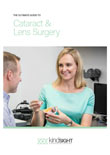As winter fades into spring and the flowers begin to bloom once again, many of us start to venture out of our winter hibernation and into the garden, yard or outdoors. It’s not surprising – warmer weather inspires us to make a fresh start, maybe clean out the house, do that yard work that you never quite got around to last season, or test your skills with some handy DIY.
But before you get stuck into it, take a moment to consider the potential hazards you might face, and take steps to protect your eyes from injury or damage. That’s right – even the most basic cleaning, handyman or gardening tasks can be dangerous for your eyes!
It’s a fact that more than 90 per cent of eye injuries are avoidable. So listen closely, precaution, precaution, precaution! Interestingly, in a study conducted by the Australian Institute of Health and Welfare, it found that the majority (80%) of eye injuries involve men of working age. Additionally around half (46%) of eye-related presentations to a hospital involve a foreign body in the eye. This makes spring cleaning prime eye damage time, particularly for those busting out the power tools and cleaning chemicals.
Top Tips for Spring Cleaning Eye Safety
To help you protect your eyes from potential hazards around the home, check out these top tips for spring cleaning eye safety:
-
Limit toxic chemical use around the house.
The fumes often cause eye irritation. It’s best to use green cleaning products whenever possible.
-
Wear eye protection.
This one goes without saying when operating machinery (power tools, leaf blower, mower, grinder) conducting repairs (e.g. with a hammer or drill), spending time in the garden, and when around gaseous chemicals. If you don’t have safety goggles, do yourself a favour and invest in some before starting any hazardous work around the house or yard. There are even safety goggles that can fit over prescription glasses. To ensure adequate eye protection against low and medium impact, Australian Standards specify requirements for safety goggles. These standards mean general prescription glasses cannot serve as protective eyewear in occupational situations. Make sure when purchasing protective eyewear to always look for Australian Standard certification.
-
Plan ahead.
Don’t be in a rush to get things done, as it can put you at risk. For example, before mowing the lawn, take the time to check for debris like sticks and rocks, that could fly up and hit you in the face. Also make sure there are no innocent bystanders, including children, in the vicinity that could be injured by flying debris.
-
Keep your hands clean.
Most eye irritants are airborne, but you can also get contaminants in your eyes by touching or wiping your face and eyes. While doing your spring clean, avoid touching your hair, face, or eyes as much as possible, and wash your hands frequently.
-
Ventilate your home.
Dealing with dust, pollen, cleaning agents and other foreign particles can wreak havoc with your eyes. Make sure you keep plenty of windows open when cleaning the house, and turn on fans to assist with air circulation.
-
Know when to seek help.
If it feels like you’ve got something in your eye, or it becomes red or irritated, then stop what you’re doing. Rinse it thoroughly with water and if it has not resolved, seek immediate help from a GP or eye health professional. If you get a foreign body in your eye that won’t come out, or you sustain an eye injury, don’t risk it – present to an eye specialist or emergency room right away.
You Only get Two Eyes
If you have an eye emergency, call the KindSIGHT clinic and come in to be treated straight away.
And remember – you only get two eyes, so keep them protected and maintain your vision for many springs to come!


